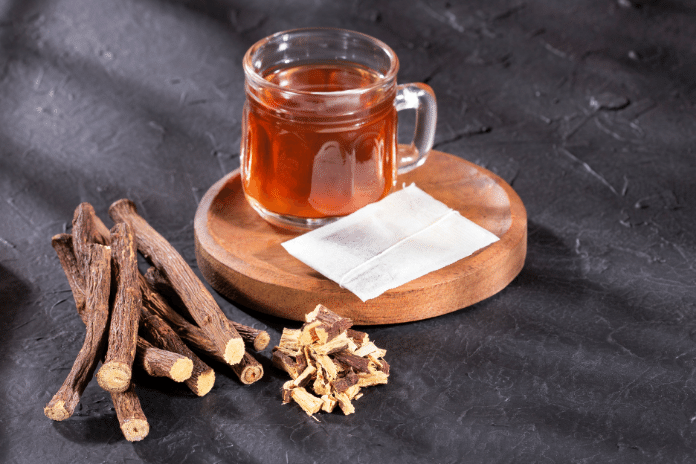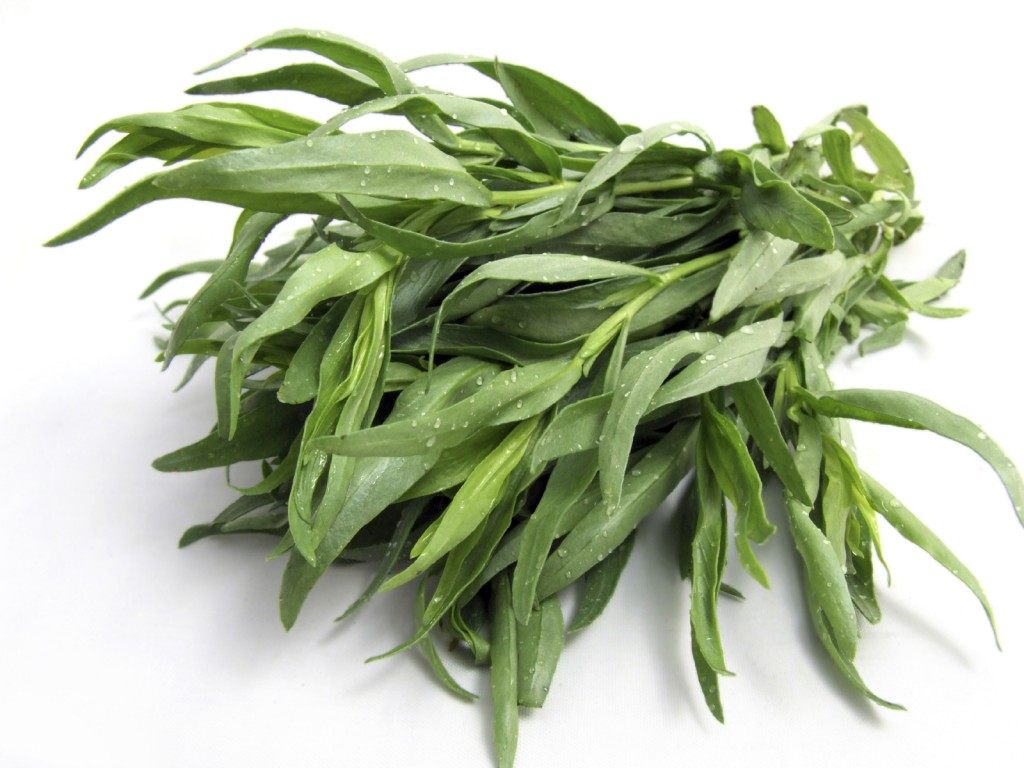For centuries, licorice root has been utilised as a natural kidney, lung, liver, and circulatory illness treatment. How true is this? Let us find out. Learn everything you should know about the good and bad of sipping Licorice tea.
In This Article:
- 7 Amazing Health Benefits of Licorice Tea
- Side Effects and Precautions
- Licorice Tea during Pregnancy
7 Amazing Health Benefits of Licorice Tea
Good for Skin Problems
Over 300 chemicals are found in licorice root, some of which have anti-inflammatory, antibacterial, and antiviral properties. Glycyrrhizin has been linked to anti-inflammatory and antibacterial properties in animal and test-tube investigations. As a consequence, licorice root extraction is used to reduce inflammation and eczema, among other skin problems. A topical gel containing licorice root extract effectively alleviated eczema in 60 individuals over the course of two weeks. Although topical licorice gels are being used to treat acne, the evidence for their efficacy is inconsistent and limited.
Helps in Indigestion
Licorice root extract is commonly used to treat indigestion problems such as acid reflux, stomach discomfort, and heartburn. Consuming a 75-mg licorice pill twice daily for 30 days in 50 people with dyspepsia led to substantial improvements in symptoms when compared to a placebo. Licorice root extract may also help with acid reflux and heartburn, which are both indications of gastroesophageal reflux disease (GERD). A modest dosage of glycyrrhetinic acid in conjunction with conventional therapy resulted in substantial reductions in symptoms in 58 individuals with GERD in an 8-week trial. While these findings are encouraging, further human research is required.
Peptic Ulcers May Be Treated
Peptic ulcers are lesions in the stomach, lower oesophagus, or small intestine that cause discomfort. Inflammation produced by the H. pylori bacterium is a common cause. Peptic ulcers may be helped by licorice root extract and its glycyrrhizin.
In one mouse research, licorice extract dosages of 91 mg per pound (200 mg per kg) of body weight were shown to be more effective than omeprazole, a popular gastric ulcer treatment, in preventing these ulcers. While additional research in humans is needed, a two-week trial in 120 people found that taking licorice extract in addition to a conventional therapy decreased the prevalence of H. pylori substantially.
Anticancer Properties
Licorice root extract has been researched for its preventive benefits against some forms of cancer due to its inclusion of many plant components with antioxidant and anti-inflammatory properties. Licorice extract and its components, in particular, have been related to delaying or inhibiting cell development in malignancies of the skin, breast, colorectal, and prostate. The consequences of the research on human malignancies are unclear because it is restricted to test tubes and animals. However, licorice root extract may help cure oral mucositis, which is a painful tongue sore that can occur as a side effect of chemo and radiotherapy in cancer patients.
Good for Upper Respiratory System
Apparently licorice root extract and tea may help with upper respiratory problems because of its anti-inflammatory and antibacterial properties. Glycyrrhizin extract from licorice root, in particular, has been shown in animal tests to effectively alleviate asthma, particularly when paired with current asthma therapies. While little human research has yielded comparable findings, more thorough and long-term study is required.
Furthermore, limited test-tube and human research show that licorice root tea and extract can help prevent glandular fever and sore throat following surgery. Even still, further study is required.
Cavity Protection
Licorice root may aid in the prevention of germs that cause cavities. 66 preschool-aged children were given sugar-free lollipops comprising 20 mg of licorice root double the a day during the schooling week in a three-week trial. The amount of Streptococcus mutans bacteria, which are the major cause of cavities, was dramatically reduced after the lollipops were consumed. Licorice root extract has also been shown to protect against germs that cause cavities and dental caries in test tubes.
Boost Your Weight Loss
According to certain research, licorice root extract helps people lose weight by lowering their body mass index (BMI). Other research, on the other hand, have shown no weight-related impacts.
Side Effects and Precautions
Licorice root has been declared generally recognised as safe for use in foods by the Food and Drug Administration (FDA). Furthermore, the FDA does not analyse or validate supplements for purity, efficacy, or ingredient labelling accuracy.
In addition, licorice root pills and teas are usually regarded safe for short-term usage. Large dosages, on the other hand, may have negative side effects, and those with specific health problems may want to avoid it.
Licorice Tea During Pregnancy
During pregnancy, taking a lot of licorice, especially glycyrrhizin, may have a detrimental impact on your baby’s cognitive development. Children born to moms who consumed significant doses of glycyrrhizin-containing licorice foods during childbirth were more likely to develop neurological abnormalities later in life, according to one research. As a result, pregnant women should avoid taking licorice medications and restrict their licorice intake in meals and beverages. Children and nursing mothers should also avoid licorice goods due to a lack of evidence.
Conclusion
Licorice root has been used to cure a range of diseases for thousands of years, particularly respiratory problems and digestive issues.
Its plant components include anti-inflammatory, antioxidant, and antibacterial properties. More extensive human trials are needed to see if it can help with acid reflux, eczema, ulcerative colitis, and other health problems.
Even yet, licorice can be harmful if ingested in excess or regularly. Before using licorice root teas, talk to your doctor.
Sources:













